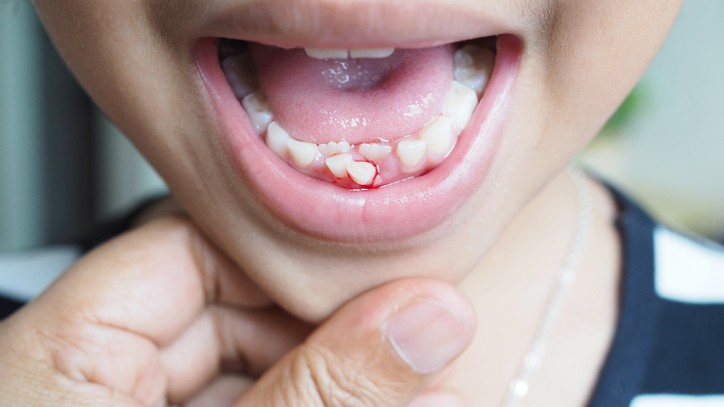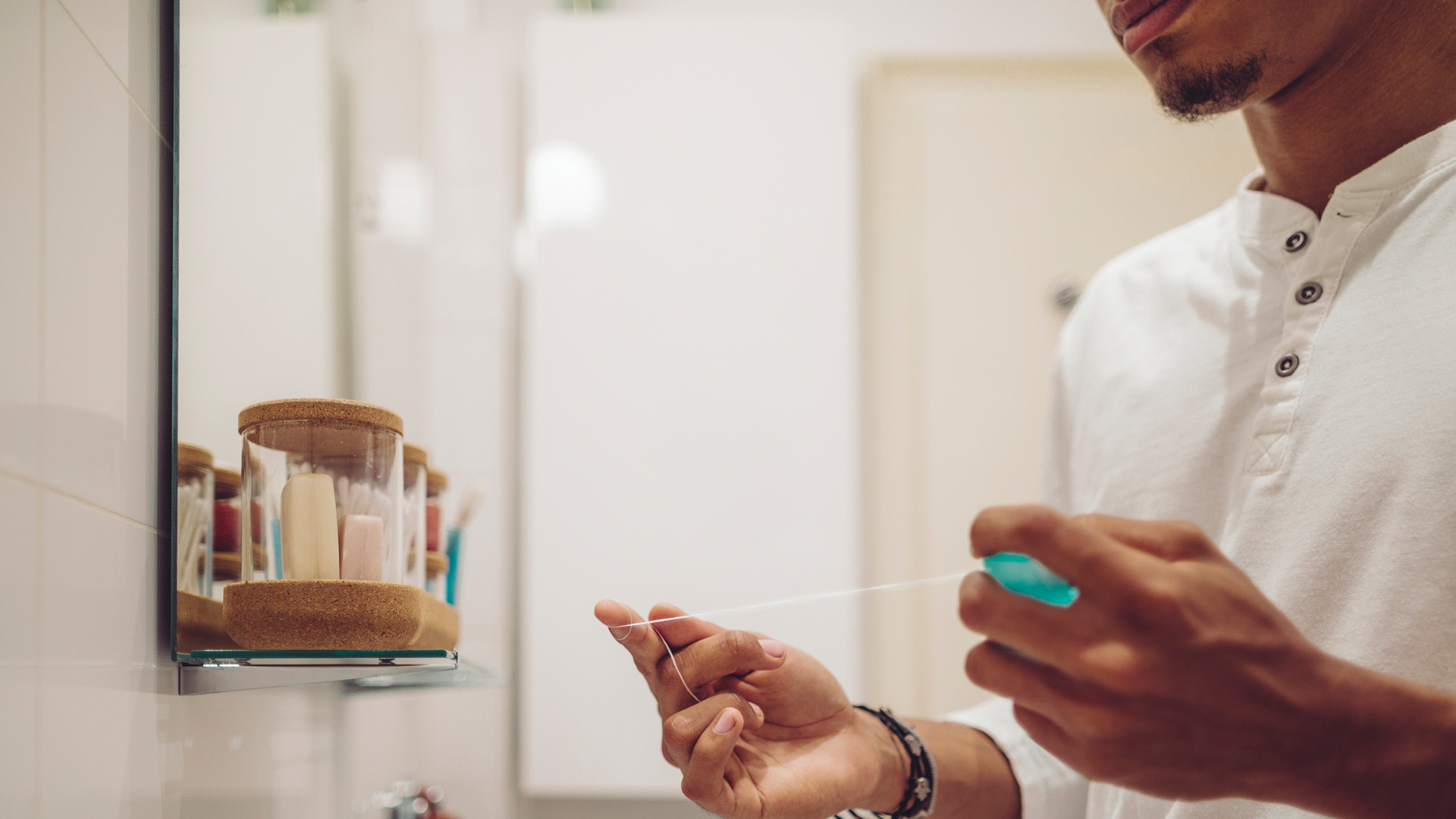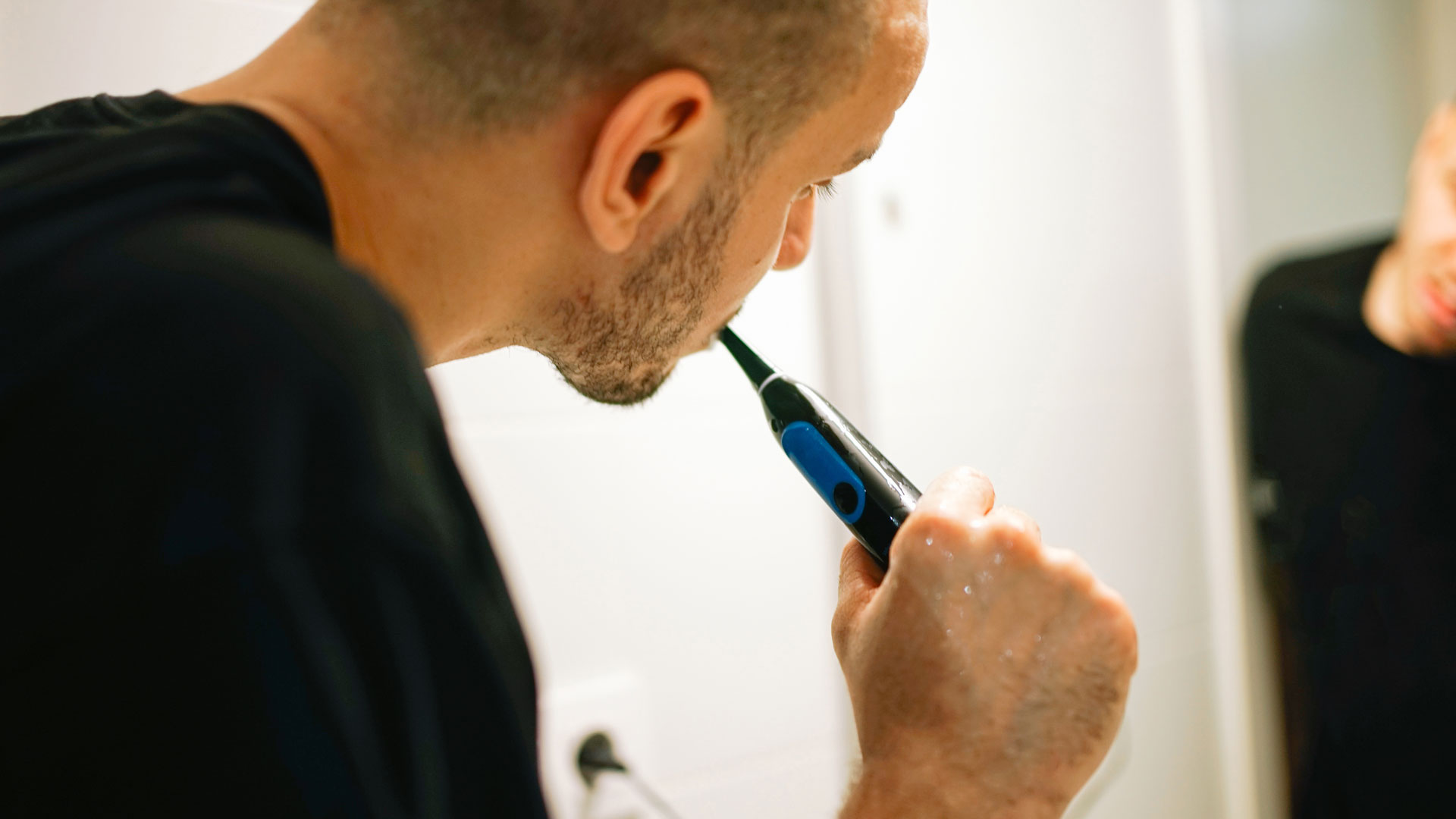What causes bleeding gums?
Here’s the lowdown on what you need to know about bleeding gums, including how to ease the symptoms

Get the world’s most fascinating discoveries delivered straight to your inbox.
You are now subscribed
Your newsletter sign-up was successful
Want to add more newsletters?

Delivered Daily
Daily Newsletter
Sign up for the latest discoveries, groundbreaking research and fascinating breakthroughs that impact you and the wider world direct to your inbox.

Once a week
Life's Little Mysteries
Feed your curiosity with an exclusive mystery every week, solved with science and delivered direct to your inbox before it's seen anywhere else.

Once a week
How It Works
Sign up to our free science & technology newsletter for your weekly fix of fascinating articles, quick quizzes, amazing images, and more

Delivered daily
Space.com Newsletter
Breaking space news, the latest updates on rocket launches, skywatching events and more!

Once a month
Watch This Space
Sign up to our monthly entertainment newsletter to keep up with all our coverage of the latest sci-fi and space movies, tv shows, games and books.

Once a week
Night Sky This Week
Discover this week's must-see night sky events, moon phases, and stunning astrophotos. Sign up for our skywatching newsletter and explore the universe with us!
Join the club
Get full access to premium articles, exclusive features and a growing list of member rewards.
If you notice you have bleeding gums, you may be tempted to ignore them. Yet it’s a symptom worth paying attention to, so you can understand the cause and treat it at an early stage. There are various reasons for bleeding gums, including poor oral hygiene, hormone fluctuations and vitamin deficiencies.
Maintaining a regular brushing regime is crucial not just for your pearly whites but for your overall gum health. If plaque accumulates near the gums, it causes irritation and bleeding. Don’t forget to gently brush the gum line, and check out our guide to the best electric toothbrushes to achieve a deep clean.
You’ll be reassured to know you can treat bleeding gums, especially if you take action in the early stages. We’ll delve into the common causes and how you can reduce your risk of developing this troubling symptom.
What are bleeding gums?
Often, the first sign of bleeding gums is when you notice blood in the sink. This is because it tends to show up when you're brushing your teeth. If your gums are sensitive or irritated, brushing can result in bleeding. That’s not an excuse to avoid brushing. Poor oral hygiene is a common cause of bleeding gums, leading to plaque and bacteria accumulating on the gum line, so knowing how to floss your teeth and how to use an electric toothbrush correctly are good steps.
Other causes of bleeding gums include gum disease, pregnancy, vitamin deficiencies, tobacco use, and over-brushing, according to the American Dental Association. Bleeding gums can also indicate more serious underlying health issues, such as leukemia – though this is not common.

What causes bleeding gums?
Bleeding gums can be a warning sign that something isn’t right. Let’s dig into the possible causes.
Gingivitis
Gingivitis is the early stage of gum disease. “Symptoms of gingivitis include constant bad breath, swollen, red, and tender gums, and bleeding when brushing or flossing,” says Dr Jeffrey Sulitzer, the chief clinical officer at SmileDirectClub.
Get the world’s most fascinating discoveries delivered straight to your inbox.
Gingivitis is more common than you might expect. According to the CDC, nearly half of adults over 30 have gum disease. The good news is that if you catch gum disease in the early stages, it's reversible.
“Though it depends on the severity of the issue, standard treatment can include a dentist removing plaque and tartar build-up. Since most gingivitis is caused by poor oral hygiene, your dentist will recommend establishing better oral health habits,” says Sulitzer.
Periodontitis
Periodontitis is a more advanced stage of gum disease – when it spreads beyond the gums to the bones. “Periodontitis includes symptoms of tooth loss, receding gums, bad breath, bleeding gums, and pain when chewing and brushing,” says Sulitzer. Act early to avoid it deteriorating to the point where you may need surgery.
Vitamin deficiencies
You’ll likely be aware of the link between eating sugary foods and cavities, but did you know your diet affects your gum health, too? “A lack of vitamins C and K could lead to bleeding gums if your diet does not contain the proper levels you need to stay healthy,” says Sulitzer.
Vitamin C is essential for collagen production, which supports optimal gum health. Don’t forget vitamin K, too. It is crucial for blood clotting, which can lessen the chances of bleeding gums.
Pregnancy
Pregnant women are at greater risk of bleeding gums. According to the American Dental Association, hormonal fluctuations result in increased blood flow and sensitivity in the gums, making them prone to bleeding. While bleeding gums are common during pregnancy, they’re not inevitable. Speak to your health provider who can advise on how to maintain your oral health during pregnancy.
Smoking
Smoking is not only linked to an increased risk of tooth staining and cavities, but it can also affect your gum health. According to the CDC, smoking is one of the main risk factors for advanced gum disease. Seek support to quit if you want a healthy smile.
Over-brushing
Poor oral hygiene is a leading cause of bleeding gums, but did you know over-brushing can be a problem too? If you’re over-zealous with scrubbing, it can be counterproductive and result in bleeding gums, according to the American Dental Association. It might be a clue that you need to ease the pressure when brushing.
How can you treat bleeding gums?
You’ll be reassured that bleeding gums are treatable, and gum disease can be reversed if you take action in the early stages. Here’s how to keep bleeding gums at bay.
Brush twice a day
Regular brushing keeps your smile bright and maintains gum health. The American Dental Association recommends brushing twice a day for two minutes.
“Proper dental hygiene is the first step to managing bleeding gums. Brushing, flossing, and rinsing are ways to prevent them,” says Sulitzer. Use gentle, circular motions when brushing, and take your time to avoid missing spots. If you suspect you're overdoing it, opt for a soft-bristled toothbrush or invest in an electric toothbrush with a pressure sensor so you can nail your technique.

Floss daily
Struggling to reach those niggly bits in between your teeth? Flossing can come to the rescue. It’s a great way to remove bacteria from hard-to-reach spots. Be gentle and avoid pinging the floss against your gum line. If you struggle with traditional flossing, why not try a water flosser like the Waterpik Complete Care 9.0? They work by squirting water into the spaces between the teeth to eliminate bacteria.
Avoid tobacco
Tobacco use is a leading cause of gum disease. Quitting smoking can significantly reduce your risk of bleeding gums and other oral health issues.
Eat a nutrient-dense diet
Focus on eating a well-balanced diet to make sure you’re meeting all of your nutritional needs. For healthy gums, pay attention to the amount of vitamin C in your diet. Eat more oranges, broccoli, and bell peppers. Vitamin K is also your friend for optimal gum health. Fill your plate with leafy greens like kale, spinach, and collard greens.
Why not check out our easy Mediterranean diet meal plan to start you on the right track?
See a dentist regularly
Don’t forget to see your dentist regularly. They can monitor your gum health at check-ups and pick up any issues early on.
Louise Bond is a UK-based writer specializing in health and wellbeing. She has over eight years of experience in management within health and care and brings this passion and expertise to her writing. Louise has been published in The Guardian, Planet Mindful and Psychreg among others. She is at her happiest when she is out in nature, whether that’s on an invigorating hike or pottering in the garden.
 Live Science Plus
Live Science Plus











